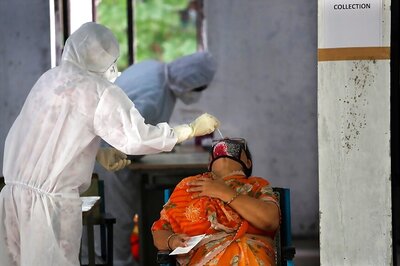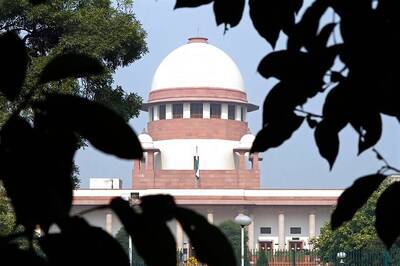
views
Guwahati: A kilogram of Manohari Gold Tea sold for Rs 50,000 at the Guwahati Tea Auction Centre on Tuesday morning, shattering the record for tea at public auction. The tea was purchased by Saurabh Tea Traders of Guwahati to meet the demand from buyers in other parts of the country.
The highest previous price fetched at public auction for tea is thought to be Rs 40,000 a kilo last year for the Golden Needle variety from the Donyi Polo Tea Estate in Arunachal Pradesh. The same year, a kilogram of Manohari Gold sold for Rs 39,001.
It is a special moment for everyone at Manohari Tea Estate in Dibrugarh district. Rajan Lohia, the owner of the garden attributes it to concerted efforts since past four years.
“This is not something that happened overnight, but the result of our hard work and perseverance since past four years. We started producing gold tea last year, and this year we have produced around 5 kilos” says Lohia who owns three tea estates in Assam – Manohari and Lengrai Tea Estates in Dibrugarh and Suntok Tea Estate in Sivasagar district.
According to Lohia, the production of Gold tea is a tedious and time-consuming process, but special because it is handmade.
“Gold tea is produced in the second flush period of May-June, depending on weather conditions. The season is over now. We produce a variety of specialty tea – CTC, Orthodox, Gold, Green and White, Silver Needle, Oolong and Yellow tea. Gold tea is almost 100% hand rolled.”
The special clone P-126/A is used to make Gold tea. Octogenarian tea taster and manager at Manohari Tea Estate, Chandra Kant Parashar, who envisioned making Gold tea said it is ‘quite flavoury’ and naturally high in polyphenol.
“It is quite a costly affair to make Gold Tea. We have produced it in a small area of about 30 acres. With God’s blessing, it has fetched good price this year,” remarks Parashar who has been serving the tea industry in Assam for 63 years.
“The Gold flecks have always been there when we manufacture Orthodox tea. The special clone P-126/A is meant only to manufacture Orthodox tea, CTC is not good out of this plant. The buds have a thick coating of pubescence - they absorb the juices of the leaves, and are properly coated with it. During fermentation, as a result of oxidation, the colour changes from green to brownish — on drying, the buds becomes golden. They are then segregated from the black leaves,” explains Parashar who does not see a bright future for the tea industry in India.
“The future looks bleak. Import prices are increasing along with production cost, labour wages and amenities. Every cost is increasing, but the price of tea is stagnant. A slight increase is not healthy at all.”
The Manohari group currently employs about thousand labourers in their Dibrugarh plantation.
(With inputs from Tomas Buragohain)



















Comments
0 comment